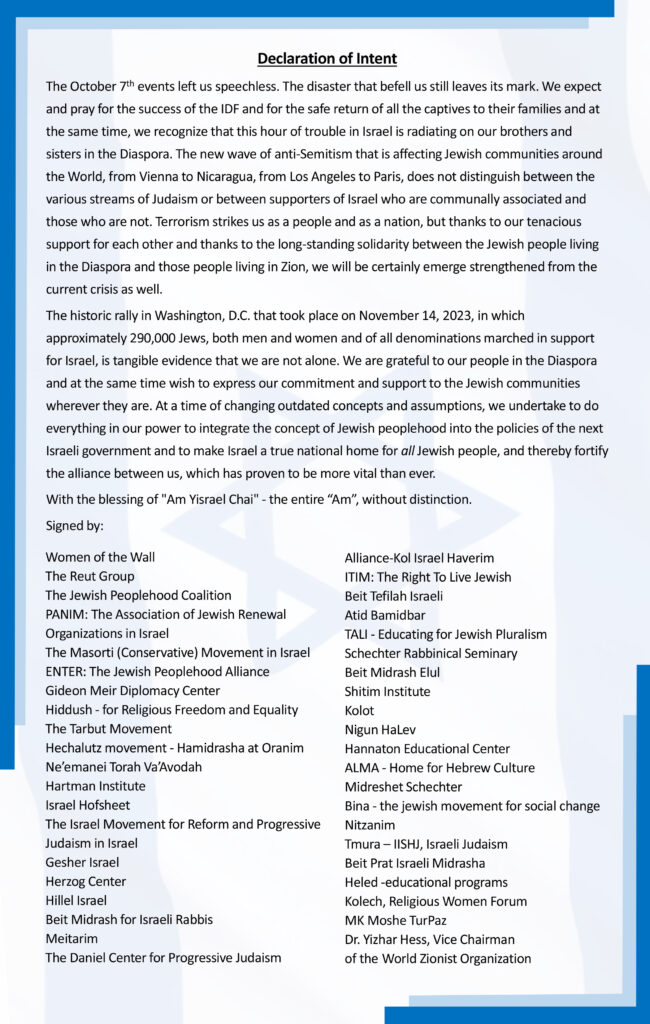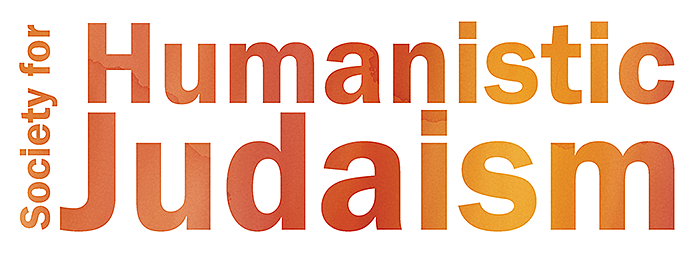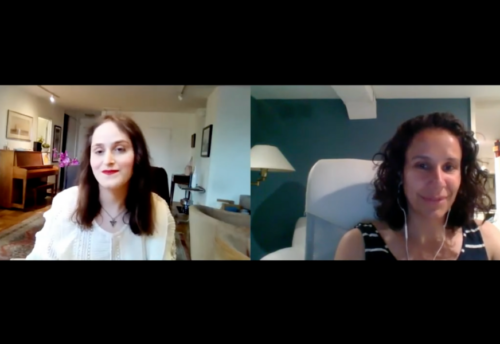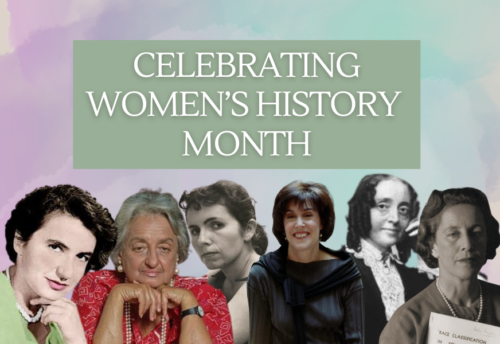
PLEASE NOTE: Within the Humanistic Judaism movement, we have the full diversity of political positions as it relates to the Israeli-Palestinian conflict. SHJ refrains from official statements on issues where we cannot speak for a significant majority of our movement. Therefore, the following should not be taken as an official position.
SHJ’s goal as a movement platform is civil dialogue, empathy, and sharing. This is more effective in person, in local communities, among people who can draw upon ongoing supportive relationships and other commonalities when disagreeing on highly emotional issues. Online, we are willing to publish diverse opinions from our movement members and leaders. Below are statements by rabbis and leaders in the Humanistic Judaism movement, along with selected poems and liturgy that may be helpful in times of grief and pain.
Broadly, we at SHJ are devastated by the Fall 2023 events is Israel and Gaza and mourn the terrible loss of life. We hope for an end to the violence and a political resolution to the conflict soon.
- HELPFUL LITURGY
Various Authors - A Call for a Permanent Ceasefire in Gaza February 2024
Randolph Splitter – Volunteer Leader at Kol Shalom, Portland, OR - Sign-On Statement from Israeli Organizations, December 27, 2023
Rabbi Sivan Maas – Tmura IISHJ Israel, Jerusalem - Position Statement on the Israel-Hamas War, December 4, 2023
Social Action Committee – Machar: The Secular Humanistic Jewish Congregation of Greater Washington, DC - “Grappling with Pacifism” Oct. 19, 2023
Jeff Treistman – Secular Jewish Circle of Puget Sound - “Israel and Gaza 2023” (VIDEO) Oct. 14, 2023
Rabbi Adam Chalom – Kol Hadash, Deerfield, IL - “Israel Agonies” Oct. 11, 2023
Rabbi Adam Chalom – Kol Hadash, Deerfield, IL - “The Hamas Attack on Israel” Oct. 10, 2023
Rabbi Jeffrey Falick – Congregation for Humanistic Judaism of Metro Detroit
—–
HELPFUL LITURGY
Hope
—written by Rabbi Sherwin Wine, z”l, founder of Humanistic Judaism
I believe.
I believe in hope.
I believe in hope that chooses – that chooses self-respect above pity.
I believe in hope that dismisses – that dismisses the petty fears of petty people.
I believe in hope that feels – that feels distant pleasure as much as momentary pain.
I believe in hope that acts – that acts without the guarantee of success.
I believe in hope that kisses – that kisses the future with the transforming power of its will.
Hope is a choice,
never found,
never given,
always taken.
Some wait for hope to capture them.
They act as the prisoners of despair.
Others go searching for hope.
They find nothing but the reflection of their own anger.
Hope is an act of will,
affirming, in the presence of evil,
that good things will happen,
preferring in the face of failure, self-esteem to pity.
Optimists laugh, even in the dark
They know that
hope is a life-style –
not a guarantee.
The Unwritten Eulogy
— written by Rabbi Jodi Kornfeld (Beth Chaverim) and adapted in response to the terror in Israel
I traffic in ritual; words are my currency.
My aims are both lofty and personal,
Give meaning to those intersectional moments where the present confronts its past
and navigates its way into the future.
Let the generations join together even as they necessarily and inevitably move
apart.
Yes, I traffic in ritual; words are my currency.
But now I stutter and stammer because my stockpiles have dwindled.
The silos have emptied and the vats have drained.
Unlike Joseph, I Yosepha did not prepare for this. . . .
This is the unwritten eulogy, the failed ritualization of loss and memory.
When words are unspoken, they never reach their audience.
They remain vague unformed thoughts seeking the release of articulation.
The raw materials remain without the opportunity to become something.
The inability to weave together the strand of memory with that of loss; the one of
hurt with the one of forgiveness; and the thread of joy with that of sorrow, means
that no new fabric emerges; no textile of reconciliation.
Instead there is a pain and profound isolation that is even deeper because
I traffic in ritual and words are my currency. . . .
Untitled
—written by Martín Di Maggio, Great Britain
Spinoza Havurah and student in the IISHJ Leadership Training Program
May it be so that all peoples be free from occupation, free from insecurity, free from hatred, free from the need to defend themselves, free from the need to justify their identities, free from unjust retaliation and vengeance, free from bombing, free from terrorism and free from racism.
Let no human be starved of food, starved of water or starved of energy.
Let no human being be imprisoned unjustly, ghettoised, sieged, kidnapped, tortured or assaulted.
Let us sit down together in harmony – mah tov umah na’im shevet amim gam yahad – how good and how lovely it is when people sit together. En hatzdakah le’alimut – there is no justification in violence.
Venomar Shalom (and let us say peace)!
—–
A CALL FOR A PERMANENT CEASEFIRE IN GAZA
It’s long past the time when humanistic Jews should have spoken out against the indiscriminate killing of innocent Palestinians in Gaza. Of course some of us have, but it would be worthwhile even now for all of us to call for a permanent ceasefire in Gaza, the safe return of the hostages, and a commitment to a political rather than a military resolution of “the conflict.” Yes, the Oct. 7 Hamas attack was horrific, but that in no way justifies the near-genocidal destruction of Gaza and its residents. Period. Let’s not rationalize indiscriminate violence against innocent people, including children, in the name of self-defense.
Yes, we must recognize that Israeli Jews have gone through a traumatic experience, but that doesn’t mean that we should “stand with Israel.” Standing with Israel is a big part of the problem. The Oct. 7 attack did not arise out of nothing: the dispossession, repression, humiliation, and outright killing of Palestinians by Jewish Israelis since at least 1948 played a part in triggering that explosion of violence. Which is not to excuse Hamas or the “fighters” who carried out the attack. But it is to recognize that the strategy of “eliminating Hamas” is simplistic.
Because of the “success” of the Oct. 7 attack and the extreme brutality of the Israeli response, Hamas is more popular than ever among Palestinians. The only way to change that dynamic and create the conditions for a sustainable peace is to stop the continuing dispossession and repression of Palestinians and “grant” them full human and political rights. (Of course Jewish Israelis don’t have the right to “grant” rights to Palestinians any more than they have the right to withhold them.)
Palestinians would be far more willing to live in peace with Israeli Jews if they had freedom, equality, and dignity. The apartheid conditions of the occupied West Bank and the second-class citizenship of Palestinian citizens of Israel undermine any prospects for peace and cooperation. Please remember, most of the over 700,000 Palestinians who fled in 1948 were forcibly expelled—and were not allowed to return. Many current residents of Gaza and the West Bank trace their roots to cities, towns, and villages in what became Israel, villages that were often simply erased. We can’t change history, but we can do our best to stop marching down the same disastrous path.
As humanistic Jews who are not beholden to religious dogma, messianic fantasies, or communal shibboleths, we should be able to recognize our common humanity, call for an end to the killing, and put justice above tribal loyalty.
—–
SIGN-ON STATEMENT FROM ISRAELI ORGANIZATIONS
From Rabbi Sivan Maas, Dean, Tmura IISHJ Israel, December 27, 2023
“Wishing a better year from the last one, hoping that our movement will grow stronger together. Tmura IISHJ has been a part of this network of liberal Jewish organizations striving for a humanistic democratic Israel, supporting our family world wide. Wishing you a warm and safe winter, for you and yours, Sivan”

—–
POSITION STATEMENT ON THE ISRAEL-HAMAS WAR
Social Action Committee, Machar: The Secular Humanistic Jewish Congregation of Greater Washington, DC, December 4, 2023
Machar recognizes that this is a time of great pain and anger for our congregation, Israelis, Jews, Palestinians, Muslims, and people everywhere. We unequivocally condemn the brutal terrorist attack by Hamas on October 7, 2023, and the ongoing attacks by Hamas and other terrorist groups against the State of Israel. We firmly support Israel’s right and obligation to defend its citizens, to secure the release of kidnapped hostages, and to hold Hamas fully accountable. But we also urge a more humane response in light of the terrible plight of the many hostages and the extraordinary suffering of thousands of civilians in Gaza under Israel’s retaliatory attacks as well as Hamas’ cruel control. We urge the immediate release of all the hostages in Gaza, and the Red Cross monitoring their condition until then.
We mourn the heartbreaking deaths and injuries of Israelis and Palestinians, the loss of homes and precious memories, and the loss of trust among people in these communities. We hope for actions by all that are guided by our humanist principles: a belief in the inherent worth of all human beings, and a desire to increase the wellbeing of others and to strive for peaceful coexistence and security for both Israelis and Palestinians. We beseech Israel and Hamas to enable the provision of critical humanitarian aid to people in Gaza.
This devastating war underscores the urgency of achieving a just and lasting political solution that provides freedom, dignity and security to Israelis and Palestinians alike. We must seek to forge paths that will ultimately end the violence and achieve peace.
This conflict has also led to a dangerous surge of anti-Jewish, anti-Muslim, anti-Palestinian, anti-Arab and anti-Israeli sentiment and actions across this country. This should be strongly condemned at all levels. We must not allow this moment to give cover to people who wish to spread hate and violence. Hatred and fear have no place in a diverse, just and inclusive society.
—–
AM ECHAD/ONE PEOPLE: ISRAEL AND GLOBAL JEWRY THROUGH ONE MONTH OF WAR
Rabbi Adam Chalom, Kol Hadash Humanistic Congregation, sermon and discussion among congregants, November 10, 2023
—–
GRAPPLING WITH PACIFISM
Jeff Treistman, Program Director at Secular Jewish Circle of Puget Sound, Seattle, WA, and SHJ Board Member, October 19, 2023
The Israel-Hamas war has led me to challenge some of my core beliefs, one of which is my belief in pacifism. Lately I’ve been wondering if there isn’t an element of nihilism in pacifism because non-violent responses to violence rarely seem to work. Knowing that this is true while maintaining a position of pacifism means I know that next to nothing will be improved by maintaining this position. But I also understand that history has a variety of time scales and what may look correct in the moment may turn out to be incorrect in the long run. Adopting a strictly non-violent stance can be challenging in the face of certain real-world conflicts and injustices. However, it’s essential to recognize that the effectiveness of non-violent methods can vary depending on the context, the nature of the conflict, and the strategies employed.
Nonetheless, the concept of pacifism isn’t necessarily rooted in nihilism. Pacifism is often grounded in the belief that violence begets more violence and that conflicts can be resolved through peaceful means. The practice of non-violence has seen success in many instances, including the civil rights movements led by Mahatma Gandhi and Martin Luther King Jr. These movements were instrumental in effecting significant societal change without resorting to physical violence.
That being said, it’s crucial to acknowledge that there might be situations where non-violent resistance alone may not suffice to confront extreme forms of oppression or aggression. It’s also worth noting that pacifism doesn’t necessarily mean passivity. It can involve active engagement in processes that promote understanding, empathy, and dialogue, all of which can contribute to long-term societal transformation.
Understanding the historical context and acknowledging the complexity of long-term consequences is crucial when evaluating the effectiveness of any ideology. It’s important to remember that while immediate results might not always be visible, the impact of advocating for non-violence and peaceful solutions can create a foundation for lasting change and a more harmonious society in the future.
Ultimately, it’s essential to remain open to various perspectives and continue to seek nuanced approaches that promote justice, peace, and well-being for all. Striving for a balance between peaceful resistance and the need for action in the face of extreme injustices might be a way to reconcile your values with the realities of the world.
What action can you take and why? Rabbi Adam Chalom recently wrote in the SHJ blog [above], “Humanistic Jews are sometimes asked what we do if we do not pray. The answer is: we DO. Personal connections are vital at moments of shock, confusion, sadness; make them if you can today.” Raise your voices and ask questions; let them be heard by family, friends, neighbors, your governmental representatives and everyone else in your sphere. Though you may be questioning your own beliefs, as I do, now is not the time to be silent.
—–
ISRAEL AND GAZA 2023
Rabbi Adam Chalom, Kol Hadash Humanistic Congregation, Sermon delivered on October 14, 2023
—–
ISRAEL AGONIES
Rabbi Adam Chalom, Kol Hadash Humanistic Congregation, October 11, 2023
It has been a horrible few days, and the future looks bleak.
There are four questions that we want answered now, even if the answers are not yet clear.
- What can I do?
- What happened and what’s happening now?
- Why did it happen?
- What will happen next?
Here are 3 things you can do right now.
1) If you know people in Israel or people here who have relatives there, reach out to them to let them know that you are thinking about them. I sent a dozen messages yesterday to colleagues there, and they were all warmly received. Humanistic Jews are sometimes asked what we do if we do not pray. The answer is: we DO. Personal connections are vital at moments of shock, confusion, sadness; make them if you can today.
2) The Chicago Jewish Community will be rallying… There are many national and international Jewish organizations that have set up special appeals to help those in need, including the Jewish United Fund of Metropolitan Chicago, Magen David Adom (Israel’s “Red Cross”), the Jewish Agency and others.
3) While there are immediate needs for humanitarian recovery, emotional support, and rebuilding, the underlying conflict between Israelis and Palestinians will not be solved by Hamas murder or by Israeli missiles. If you are moved to try to look forward through charitable giving or activism, consider supporting those with visions for coexistence and peace, even in the midst of war. Some are Israeli, others Palestinian, still others are joint initiatives. Instead of singing “oseh shalom, He makes peace,” we sing “na’ase shalom, we will make peace.” Now is a good time to act on our beliefs.
What happened?
The last time Israeli home front communities were occupied by hostile invaders was during the 1948-9 War of Independence. The last time Israel was taken this completely by surprise was the 1973 Yom Kippur War – on the general calendar, exactly 50 years and one day before this attack. The last time Israelis were taken hostage in large numbers was the 1970s. This is Pearl Harbor and 9/11 put together but even larger – 700 Israeli soldiers and civilians dead, 2500 wounded and 150 hostages would be proportional to 24,000 Americans killed, 87,000 wounded, and 5,000 captives. Every Jewish Israeli family has been touched or know those who have been: dead or wounded, military prisoner of war or civilian hostage. Rockets have fallen on Tel Aviv and Jerusalem, the northern front with Lebanon threatens to accelerate, and the West Bank simmer may yet boil.
As Israel ramps up its response and Hamas continues its “rockets and hostages” strategy, more civilians will die on both sides. Hamas puts operations centers in residential buildings with its own people and now Israeli hostages as human shields, and even if Israel often gives notice of an attack for civilians to evacuate, homes and lives will still be destroyed. We can and should differentiate between collateral damage to Palestinian families from missiles into Gaza and the face-to-face brutal kidnapping, rape, and slaughter of entire Israeli families on October 7 and its aftermath. Yet civilian deaths are still tragic, whoever we determine is ultimately to blame; our human sympathies coexist with our Jewish grief.
As for what is happening now, that is all over the news and social media, and any summation would be out of date soon. You will need to decide how many images you can see, videos you can stomach, heart-wrenching personal stories you can stand. You do not need to watch them all, read them all, cry through them all. And there will be many coming at us from every direction.
Why did it happen?
We will hear many theories in the days to come. Why Hamas and Islamic Jihad attacked may include derailing attempts to normalize relations with Israel without addressing Palestinians, both past Abraham Accords and proposed Saudi initiatives; undermining the Palestinian Authority by achieving the release of Palestinian prisoners; disrupting Israel’s sense of security and dominance; and, quite simply, bloody revenge for a situation they see as hopeless and going nowhere. Hamas knows what will follow their attacks. If they consider the coming disaster better than the status quo, that tells us much about both their desperation and their fanaticism.
As for why Israel’s defensive catastrophe, factors include failures of Israeli intelligence and imagination; a false sense of security in technology, rocket defense, and static barriers; an illusion of maintaining an unsustainable status quo. What is unthinkable remains impossible until it happens, as with the 9/11 airplane attacks in the United States. The strategic and political implications of this weekend’s events will echo for months and years. The sadness they feel, and that we feel as part of the global Jewish family, is immediate.
What will happen next?
Hosea 8:7 says that those who plant the wind shall harvest the storm. Whichever side planted first, or worst, or most recently, the storm is coming. We will need to hold on to each other, to remind ourselves of our values and commitments, to maintain our humanity as we support our people. The short version is that we do not know what will happen beyond a likely Israeli invasion of Gaza and intensification of the conflict. Where else, for how long, how many casualties cannot be known.
This coming Shabbat, we will come together to mourn, to share, to consider what has been and what will be. You are invited to be with us in person or online in this difficult moment.
Shock and sadness, confusion and anger, bitterness and despair are in our hearts today. May we soon make the turn to resolve and courage, caring and compassion, and, someday, hope.
—–
THE HAMAS ATTACK ON ISRAEL
Rabbi Jeffrey Falick, Congregation for Humanistic Judaism of Metro Detroit, October 10, 2023
Just four days after the barbaric and savage carnage committed by Hamas and Islamic Jihad against innocent Israelis, the world tensely awaits the coming war.
It is undeniable that it will be a disaster for the Palestinians. Anyone with a pulse could predict the Israeli reaction to this bloodthirsty attack. A less brutal assault would have demanded one, how much the more so this inhuman murderous attack on civilians. As Israelis wade through the carnage of their loved ones and the terrifying gut-wrenching anxiety over hostages they want their government to act. The terrorists knew going in that this would be the case. And they did not care.
Many within the Palestinian solidarity movement recognize this inevitability. To them the consequences are truly frightening. They’ve voiced their concerns and demands for Israeli restraint. But they care infinitely more about Palestinian lives than Hamas does.
Consider this tone-deaf statement issued by Rep. Rashida Tlaib, whom I have welcomed to our congregation and whose right to advocate for her Palestinian family and home I have supported:
“I grieve the Palestinian and Israeli lives lost yesterday, today, and every day. I am determined as ever to fight for a just future where everyone can live in peace, without fear and with true freedom, equal rights, and human dignity. The path to that future must include lifting the blockade, ending the occupation, and dismantling the apartheid system that creates the suffocating, dehumanizing conditions that can lead to resistance. The failure to recognize the violent reality of living under siege, occupation, and apartheid makes no one safer. No person, no child anywhere should have to suffer or live in fear of violence. We cannot ignore the humanity in each other. As long as our country provides billions in unconditional funding to support the apartheid government, this heartbreaking cycle of violence will continue.”
I, too, grieve the deaths on both sides. I speak daily about the fundamental human right to live in peace, without fear and with true freedom, equal rights, and human dignity for all people. On that we would seem to agree. Anyone who has read a thing I have written or spoken about Israel’s policies knows that I do not excuse it from responsibility to respect and advance human rights. I have decried the encroaching apartheid of the West Bank. I have bemoaned the creeping authoritarianism of Israel’s governments. And I have denounced the religious extremists and their damaging settlement policies on pretty much every day that ends in a “y.”
But let us be clear about one thing. Neither the blockade nor the occupation nor the growing conditions of apartheid are the causes of the Simchat Torah Massacre. Hamas is not a resistance movement. Hamas does not share in my or Rep. Tlaib’s stated commitments to freedom, equal rights, and human dignity.
Hamas is not a liberation organization. Hamas is a death cult of evil religious fanatics who would put every Israeli Jew to death and every Palestinian Muslim under repressive religious control if it could. (Although not before sacrificing the lives of thousands of Palestinians to the inevitable and completely foreseeable consequences of their own vicious brutality.)
They are not resisting the occupation. They feed off it like mother’s milk.
Too many in the Palestinian solidarity movement refuse to see this. Posts on social media—many from organizations that I have defended (I’m looking at you, Jewish Voice for Peace)—callously described the attack as a “prison break.” If Gaza is, as they say, “an open air prison,” it is a prison of Hamas’ own design and making.
Israel withdrew from Gaza in 2005. I was there. I saw it with my own eyes. It was highly divisive in Israel, but also a moment of great hope for the majority of Israelis. They viewed it, as I did, as a golden opportunity for Palestinians to finally take charge of their own lives and begin the process of building their state. Those who decry the fact that Gaza’s airspace and seas remained under Israeli control forget that such things were determined by the Oslo Accords and were scheduled to change with the advance of peace. After the Second Intifada, hopes for Gaza were really the only hopes for any peace at all.
To demonstrate its commitment to the Gaza experiment, Israel built the Kerem Shalom (“Vineyard of Peace”) Crossing where the borders of Egypt, Gaza, and Israel meet, with the intent of increasing trade and goodwill. I recall a 2006 visit to the almost-completed mega-complex. I was not alone in hoping that it pointed toward better days ahead.
It never became fully operational. By the time it was built, Gaza was now under the control of a terrorist organization, an Iranian-funded chaos-agent on the Israeli and Egyptian borders. After it violently dealt with what was left of the Palestinian Authority, Hamas began its attacks on Israel. Were they fighting for true freedom and human dignity? Certainly the Muslim extremist regime that Hamas imposed upon Gazans represented nothing of the sort.
It is a strange feeling to find myself defending Israel when it seems that I have done nothing but criticize it for the past several years. To point out the reality of Hamas requires of me not one inch of withdrawal from my disapproval of Israeli policies. Everything I have said or written about its inhumane and counter-productive treatment of Palestinians remains true. I stand behind every talk or commentary I have delivered about its government’s growing religious intolerance, its abandonment of democracy, and all its other failures. And, in fact, I’ll have much more criticism to add in the days and weeks to come.
But right now I am dealing with images burned into my very soul of what the sadistic Hamas death cult has wrought upon my people.
Last night, I attended the Detroit solidarity gathering which called on attendees to “stand with Israel.” Throughout many years of Zionist activism, I frequently echoed that sentiment. However, as time went on, my alignment with that call diminished with my growing disappointment in Israel’s direction. Despite that, in this very moment, I hear the cry of our people to stand by their side.
And so today, I stand with Israel.
***




I agree with all that you have said. What going forward does the collective wisdom of the Rabbis recommended we do as members of Society of Humanistic Judaism for both Israel and the Palestinians that will both suffer greatly from the actions of Hamas?
I am not a rabbi. Raised Reform. In fact I went to a Humanistic service and didn’t feel comfortable because I’m used to more Gd talk lol. But I am finding great community and comfort here right now. I want to hear humans talking about other humans in honesty and compassion. And I want to respond to your question if that is ok. I think we should do all the things in the manner opposite of fear and hate. Anything and everything you do, do in a manner of life and love. Stand strong and stay in love ✡️❤️🔥💪
I strongly identify with Secular Jewish Humanism and at this at this challenging time for all Jews look to it for guidance and support. As a child of Holocaust survivors the rise in world wide antisemitism is traumatizing for me, though I am encouraged that they SURVIVED and believe that ability was passed on to me. Please adress this issue in your publication.